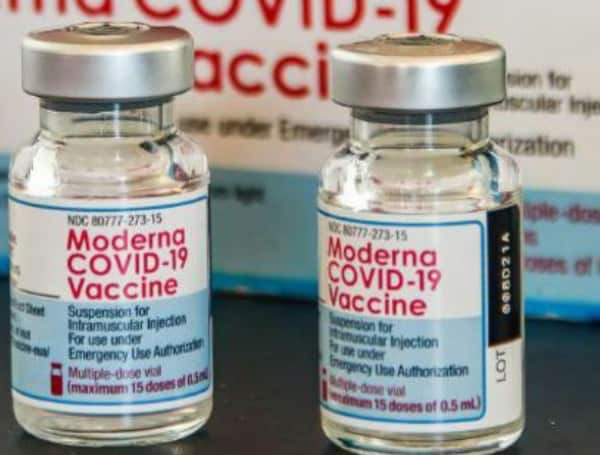The U.S. Food and Drug Administration (FDA) is set to significantly alter its approach to approving COVID-19 vaccines, a move that will primarily limit future vaccine recommendations to older Americans and those with pre-existing health conditions that elevate their risk of severe COVID-19 outcomes.
This change marks a departure from the previous “one-size-fits-all” strategy that has characterized U.S. vaccination policy since the pandemic began.
The new regulatory framework, detailed in an editorial published Tuesday in the New England Journal of Medicine by Dr. Vinay Prasad, the new director of the FDA’s Center for Biologics Evaluation and Research, and FDA Commissioner Dr. Marty Makary, outlines an “evidence-based approach” to COVID-19 vaccination. The editorial, titled “An Evidence-Based Approach to Covid-19 Vaccination,” highlights the evolving understanding of vaccine efficacy, natural immunity, and public trust in the past five years.
READ: Regeneron To Acquire 23andMe In Bankruptcy Sale, Sparking Data Privacy Concerns
For individuals aged 65 and older, and those aged 6 months and above with one or more CDC-defined risk factors for severe COVID-19, the FDA anticipates granting approvals based on immunogenicity data – proof that a vaccine can generate sufficient antibody titers. This broad category of high-risk individuals, encompassing conditions such as obesity and even mental health conditions like depression, is estimated to include between 100 million and 200 million Americans.
However, for healthy individuals between the ages of 6 months and 64 years without elevated risk factors, the FDA will now require randomized, controlled trial data evaluating clinical outcomes before granting Biologics License Applications. This means vaccine manufacturers will need to demonstrate a clear clinical benefit, such as a reduction in symptomatic COVID-19, through robust studies. The FDA’s preferred study design for these trials involves a primary endpoint of symptomatic COVID-19, with secondary endpoints including severe COVID-19, hospitalization, and death, and a minimum follow-up of six months. The agency also suggests that control groups could receive a saline placebo to comprehensively document adverse events.
This shift in policy comes as the U.S. has maintained the most aggressive annual COVID-19 booster program among high-income nations, recommending booster shots for all Americans each fall. In contrast, European nations, Canada, and Australia have generally confined vaccine recommendations to older adults or those at high risk for severe outcomes.
READ :City In Michigan Celebrates Milestone As EPA Lifts Safe Drinking Water Emergency Order
The editorial notes a significant decline in public uptake of annual COVID-19 boosters in the U.S. over the past two seasons, with less than 25% of Americans receiving boosters annually. Hesitancy has been observed across age groups, including among healthcare workers. The authors also express concern about a “ripple effect,” where declining trust in general vaccination programs, such as for measles-mumps-rubella (MMR), has contributed to serious public health issues.
Dr. Prasad and Dr. Makary emphasize that while the rapid development of COVID-19 vaccines was a monumental achievement, the benefit of repeat dosing, particularly for low-risk individuals with prior vaccinations and/or infections, remains uncertain. The new framework seeks to balance the need for timely vaccine access for high-risk groups with a commitment to “gold-standard science” and robust evidence generation for healthy populations.
The FDA believes these new clinical trials will provide crucial information to healthcare providers and the American public, guiding future vaccination strategies and rebuilding trust in public health initiatives. The agency states that it will evaluate individual applications on a case-by-case basis, maintaining a focus on the benefit-risk balance of each regulatory submission.
Please make a small donation to the Tampa Free Press to help sustain independent journalism. Your contribution enables us to continue delivering high-quality, local, and national news coverage.
Connect with us: Follow the Tampa Free Press on Facebook and Twitter for breaking news and updates.
Sign up: Subscribe to our free newsletter for a curated selection of top stories delivered straight to your inbox.

